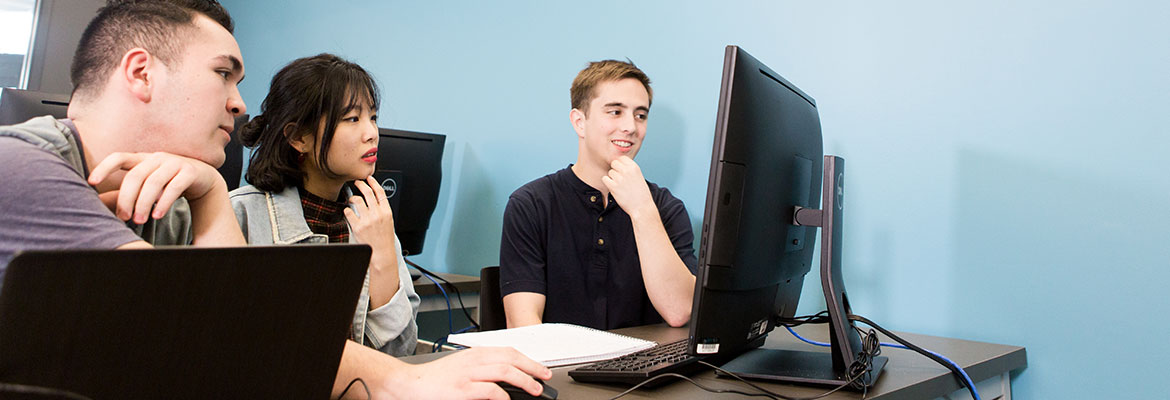Minor in Applied Statistics and Data Science

Overview
Statistics and data drive culture, industry and new ideas. Journalists, businesses, public and private organizations rely on data and statistics to make informed decisions, to communicate new discoveries and emerging issues, and to introduce new products and ideas into the marketplace. Biola’s applied statistics and data science minor empowers students to look for hidden information or patterns and to discover how they influence key decisions. This minor is designed to be interdisciplinary — which means — you may be a journalist who discovers your next big story within a statistical pattern or a future psychologist who recognizes mental health and wellness data trends which inform your practice. Through our practicum course, you’ll practice applying what you’ve learned to real-life situations. Integrating your biblical training throughout our technical program, you’ll learn how to be a pivotal resource in your career field.
Courses
Below are the course requirements for this academic program. In addition to these program-specific requirements, all majors include Biola's traditional undergraduate core curriculum. For more program details, including a sample course sequence, visit Biola's academic catalog.
Mission
The mission of the Statistics and Data Science program is to equip students from different majors to obtain valid data and use it to answer the questions they face on the job and in the world, with a biblical worldview.
Curriculum Requirements
An Applied Statistics and Data Science minor is offered with the completion of 18 credits, at least 9 of which must be upper-division. A minimum of 9 credits must also be unique to the minor (not counted toward any other requirements, including minoring in the same department as the major).
| Code | Title | Credits |
|---|---|---|
| Program Courses | ||
| CSCI 105 | Introduction to Computer Science | 3 |
| MATH 318 | Biostatistics (recommended) | 3 |
| or MATH 190 | Business Statistics | |
| or MATH 210 | Introduction to Probability and Statistics | |
| MATH 319 | Statistics II | 3 |
| or MATH 380 | Statistics and Data Science Consulting Practicum | |
| MATH 470 | Statistics and Data Science Capstone | 3 |
| Select 6 credits from the following: | 6 | |
| Data Structures | ||
| Programming for Data Science I | ||
| Programming for Data Science II | ||
| Business Analytics | ||
| Advanced Business Analytics with Machine Learning and AI | ||
| Statistics II | ||
or MATH 380 | Statistics and Data Science Consulting Practicum | |
| Total Credits | 18 | |